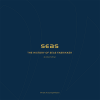Henry James and Queer Modernity
In Henry James and Queer Modernity, Eric Haralson examines far-reaching changes in gender politics and the emergence of modern male homosexuality as depicted in the writings of Henry James and three authors who were greatly influenced by him: Willa Cather, Gertrude Stein and Ernest Hemingway. Haralson places emphasis on American masculinity as portrayed in fiction between 1875 and 1935, but the book also treats events in England, such as the Oscar Wilde trials, that had a major effect on American literature. He traces James’s engagement with sexual politics from his first novels of the 1870s to his ‘major phase’ at the turn of the century. The second section of this study measures James’s extraordinary impact on Cather’s representation of ‘queer’ characters, Stein’s theories of writing and authorship as a mode of resistance to modern sexual regulation, and Hemingway’s very self-constitution as a manly American author.
• Sheds light on the influence of Henry James’s writings about sexuality on major American writers of the modern generation • Covers a range of writers, including Willa Cather, Henry James, Ernest Hemingway and Gertrude Stein • Will be of interest to scholars of Modernism and Gay and Lesbian studies
ContentsAcknowledgments; List of abbreviations; Introduction; 1. Indiscreet anatomies and protogay aesthetes in Roderick Hudson and The Europeans; 2. The elusive queerness of ‘queer comrades’: The Tragic Muse and \'The Author of ‘Beltraffio’\'; 3. The Turn of the Screw, or: The Dispossessed Hearts of Little Gentlemen; 4. Masculinity ‘changed and queer’ in The Ambassadors; 5. Gratifying ‘the eternal boy in us all’: Willa Cather, Henry James and Oscar Wilde; 6. ‘The other half is the man’: the queer modern triangle of Gertrude Stein, Ernest Hemingway and Henry James; Coda: ‘Nobody is alike Henry James’: Stein, James and queer futurity; Notes; Bibliography; Index.
Reviews‘… there are scintillating readings in Henry James and Queer Modernity, not least of Roderick Hudson, The Tragic Muse and The Ambassadors. These are combined with shrewd insights, considerable erudition and writing of rare panache.’ Times Higher Education Supplement
‘Brilliantly reasoned, witty and erudite study …’ The Henry James Review
\'Henry James and Queer Modernity is inspired and essential for the way it makes James\'s sexuality not only a positive part of his signature aesthetic but a source of trenchant cultural critique beyond what we normally expect from him … offers up an important theory of the relations among art, sex and politics.\' Modernism/Modernity
- Forlag: Cambridge University Press
- Utgivelsesår: 2007
- Kategori: Teori
- Lagerstatus: Ikke på lagerVarsle meg når denne kommer på lager
- Antall sider: 279
- ISBN: 9780521036214
- Innbinding: Heftet












